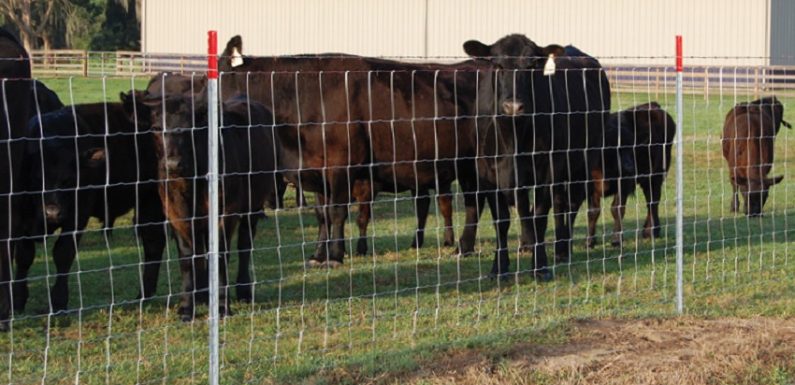
When it comes to field security, one of the most important aspects is fencing. However, not all fencing is the same. Below, we go over the different types of fencing in more detail.
Types of Animals
The type of fences you will need will largely depend on the kinds of animals you are keeping. Below is a little more info about that:
Horses
Barbed wire fences should never be used around horses. Horses can easily get tangled in this type of fence, which can lead to serious injuries. Another kind of fence to certainly avoid is the high-tensile single-wire fence. Horses will not be able to see this fence easily, which means that they can run into it. The thin-wire fence can cut the horse. Equestrian fences must always be easily visible to ensure that horses do not run into them. Some options might be timber post and rail, stud rail, specialist horse netting, and various recycled plastic rail options.
Sheep
Sheep can be kept secure by most kinds of fencing. However, they can put pressure on wire netting and so a good quality strong netting with the appropriate mesh pattern should be chosen. The sheep’s wool must not get caught in any type of fence, as that can injure the sheep. To protect sheep, it may be advantageous to choose X knot mesh rather than hinge joint as the smoother knot is safer.
Goats
Similar fencing is used for goats as is used for sheep. However, goats are very likely to try to escape. Wood and PVC should not be used, as the animal is likely to get past it easily. Steel mesh fencing may be fine. However, as with sheep, a mesh pattern must be selected with caution, so that their heads do not get stuck in the fence.
Cattle
Cattle can be kept in by many different kinds of fences. It must just be sturdy enough for them, as cattle can be strong. If bulls are kept apart from cows, the fencing may need to be even stronger. Bulls require sturdier fences than cows.
Animals in General
The above are some of the most common livestock, but there are other animals that may be kept on your property, like chickens and pigs. Research all your animals’ needs and behaviours thoroughly to ensure that you acquire the correct fencing.
Types of Fences
There are various types of fences that can be used to secure livestock. Click here to find out more about fences and speak to professionals.
Mesh Wire Fence
Mesh wire fences are perfect for protecting livestock. It is more costly than other types of fencing, but it serves its purpose. This fence is strong and can be great for keeping all types of livestock safe or keeping out predators and pests.
Rail Fences
Post and rail fences are most suitable for horses. But they are also useful for fencing in general. They can be made from different sorts of materials, such as PVC plastic, wood, or vinyl-coated look. This fence can be left plain or it can be painted. Typically, post and rail fences are distinct by having flat horizontal rails attached to fence posts.
Line Wire Fences
Line wire fences are usually used for confinement spaces and corrals. Up to seven line wires are used. Each is designed from pieces of wire that are twisted together. These wires then run between fence posts. The larger the animals that need to be confined by this fence, the taller the fence should be.
Woven Wire or Hexagonal Wire Fences
The woven wire fence is made out of horizontal and vertical lines. Usually, these are smaller in size. They can be used for chickens, but are too small for larger animals like sheep and cattle.
High-Tensile Single-Wire Fence
This fence should never be used to contain horses. They will struggle to see the fence and if they run into it, it can cut them like a knife, and cause serious injuries.
Barbed Wire Fences and Electric Fences
Barbed wire and electric fences offer extra security, and can for instance be used to keep predators and thieves out. But they need to be used with caution, as they can hurt animals otherwise. For instance, horses can easily become injured by barbed wire fences, and these injuries can be fatal. Barbed wire fences should never be used with horses around. Electric fences can be very painful. Therefore, ensure that no animal gets hurt by your wired or electric fence.
Conclusion
It’s simple enough to put your own fence together to keep your livestock enclosed, but it is important that you add the right gate.

